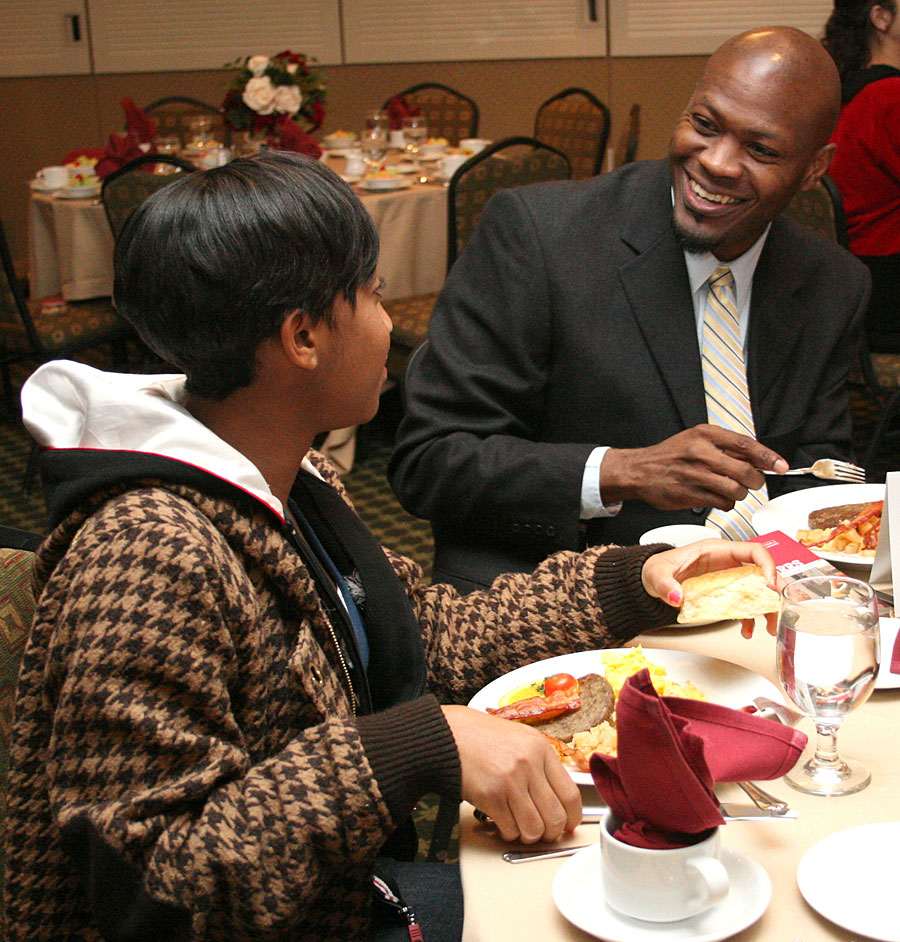When Ron Walcott talked to high school students at a recent Georgia Daze breakfast, he had five new ways to entice them to come to the College of Agricultural and Environmental Sciences—five full scholarships for minority students.
The scholarships, funded by a U.S. Department of Agriculture multicultural scholars grant, are welcome news as the college and the agricultural industries they support work to recruit more minorities into agriculture-related careers.
‘Big disconnect’
“There are all these jobs over here through our college, and all these people who need jobs who are not in our college. There’s a big disconnect,” said Walcott, who is the CAES assistant dean for diversity and multiculturalism and an associate professor of plant pathology. “The jobs that are here are very fruitful and rewarding.”
CAES graduates are in jobs from Chick-fil-A corporate offices to Capitol Hill. They’ve gone on to work at top-level jobs in horticulture, poultry science, food science and engineering. They work for various government agencies, in forensic pathology and as environmental advocates.
When Walcott is talking to highly qualified minority students through various CAES programs like the Georgia Daze breakfast and the Young Scholars Program, a full ride from other universities is often what pulls them away from UGA.
The summer-long Young Scholars Program allows high school students who show a high aptitude in math and science to intern in CAES labs.
“We have to have something to offer them,” said Jean Bertrand, CAES assistant dean of academic affairs. “They’re going because of such good scholarships. Receiving these scholarships is the only way we could compete.”
CAES has slightly higher minority numbers than other UGA colleges and schools.
“CAES is fortunate to have many talented faculty dedicated to diversity,” said Louise Wicker, a CAES professor of food science and technology.
In the past year, CAES received two USDA grants—the $150,000 multicultural scholars grant and a $142,000 higher education challenge grant. The HEC grant, directed by Wicker, helps undergraduate minority students gain research and job experience in UGA labs at the Athens, Tifton and Griffin campuses. It also provides funds for faculty, staff and students to improve their mentorship skills in science, technology, engineering and math.
Teachers’ network
Walcott is developing a network of high school teachers who serve underrepresented populations in Georgia’s metro areas. He wants to show them what agricultural careers really entail so they will send students his direction.
In the past few years, CAES has seen a slight increase in minority populations. In 2007, CAES had 55 Asian students, or 3.9 percent of the population, up from 33 students in 2003. In 2007, the college had 62 African-American students, or 4.3 percent of the population, up from 35 students in 2003.
In fall 2008, CAES had 1,588 undergraduate and 414 graduate students, a record enrollment.
Serving a diverse society
“We need a more diverse pool of students to serve the more diverse industry,” Bertrand said. “And we need our industry to become more diverse to serve our even more diverse society.”
One way to entice students into ag-related majors is to get agriculture on their radars, according to Walcott. Most don’t know about agriculture or what they know is wrong.
Whether they make it a career or are simply advocate for agriculture, he wants them to think, “Oh, ag. Oh, that’s so cool.”
“Education is the only real way you can change your class, your chance to earn money and your outlook on life in your lifetime,” he said.
Walcott grew up in Barbados. Instead of making basketball a career or becoming a medical doctor, he moved to Iowa State University and went into plant pathology.
